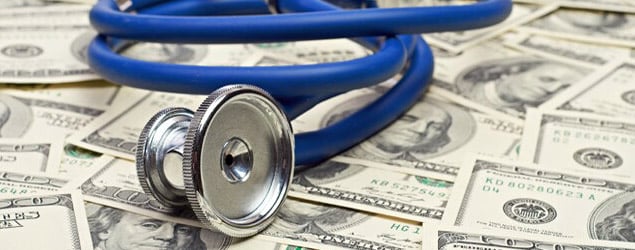What Happens To The Sick Under Capitalism?

Michael, a reader, asks, “Under capitalism, what happens to a sick person who can’t pay for health care? Does he just die on the street corner?”
Let me start with some other questions:
- Under today’s regulatory-entitlement state, what happens to a productive person when the government seizes huge hunks of his wealth to fund health entitlements?
- Under today’s regulatory-entitlement state, what happens to the doctor who is forced to practice medicine-by-bureaucracy, e.g., who is told to follow “cookbook medicine” if he wants to get reimbursed by Medicare?
- Under today’s regulatory-entitlement state, what happens to a sick person when he cannot afford health care because government intervention has made it expensive?
- Under tomorrow’s socialized medicine scheme, what happens to a cancer victim when he can’t get the treatment he needs because he’s been put on a wait list?
I raise these because there’s an assumption lurking behind Michael’s question: That a defender of capitalism must concede that government-run medicine represents a pinnacle of justice and efficiency which he can hardly hope to match.
But government-controlled health care is an immoral disaster. When government intervenes in health care, it impoverishes individuals and wrecks health care — as we’re seeing all around us today. I want to get the government out so that we can reap the benefits of a free market in health care: unmatched affordability, choice, quality, and innovation.
In a free market, the vast, vast majority of people can afford the health care they need, both because they will continually be getting richer and because any given level of medical care will continually be getting cheaper.
Will some medical procedures be expensive and even out of some people’s reach? Of course. That will lead some people to buy insurance to cover catastrophic illnesses. Others might join organizations such as the mutual aid societies that dominated America before the creation of the entitlement state. Still others will turn to friends, family, neighbors, or co-workers for help. And what about those who have no money, no insurance, and no one who cares about them enough to help out? Well, they are free to seek out the charity that has always been abundant in a free society. (Before the government got involved, most hospitals already treated patients who needed care but couldn’t pay.)
The one thing no one can do in a free system is present his need as a justification for robbing those who aren’t in need. This is a feature of freedom, not a bug. It’s what makes capitalism a moral system — a system where each individual has a right to exist for his own sake.



